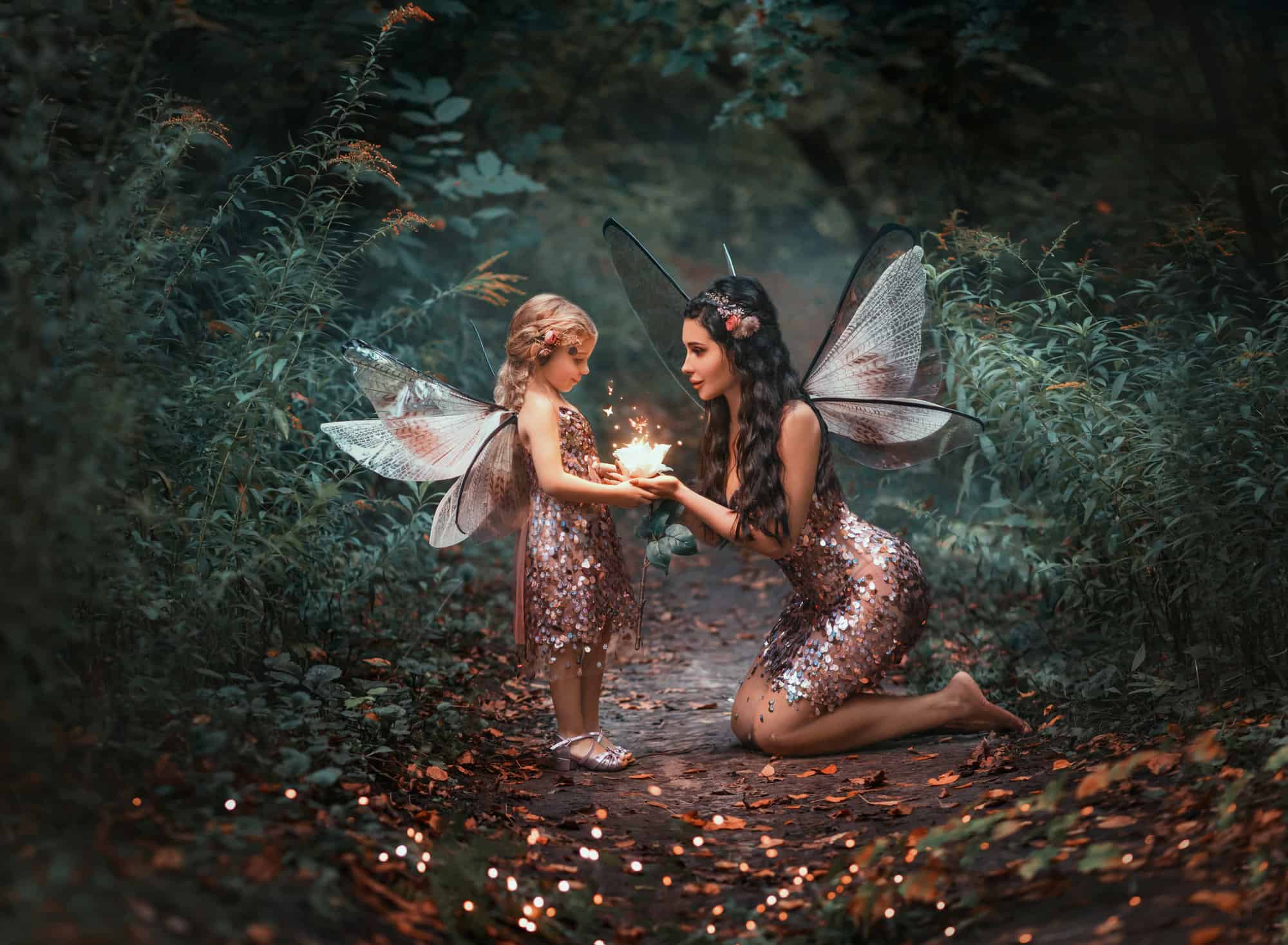Pop culture has a tremendous influence on baby names, making names like Dutton and Kayce rise swiftly in popularity, mirroring trends from TV shows like “Yellowstone”. Other inspirations come from the sports world, with names such as Lionel and Cristiano gaining traction, especially during the World Cup year.
This list of 300 inspiring pop culture baby names for the new generation captures the essence of today’s trends, from cinema and sports to music and fashion, embodying the spirit of our times. Whether you’re on the hunt for baby girl names or baby boy names, you’re sure to find the perfect name that resonates with the zeitgeist of our age.

Baby Names Inspired by Classic Literature and Mythology
Diving into the treasure trove of classic literature and mythology for baby names not only honors timeless tales but also offers your little one a piece of literary and mythological heritage. Here’s a curated selection to inspire:
From the Pages of Classics:
- Harry Potter Series:
- Harry: Derived from Old English, meaning “army ruler” or “ruler of the home,” reflecting Harry’s leadership and destiny in the wizarding world.
- Ronald (Ron): Meaning “ruler’s counsel,” fitting for Harry’s loyal and supportive best friend, Ron Weasley.
- Hermione: Greek name meaning “well-born” or “earthly,” symbolizing Hermione Granger’s intelligence and grounded nature.
- Ginny (Ginevra): Of Celtic origin, meaning “fair-haired,” reflecting Ginny Weasley’s vibrant personality.
- Neville: Derived from French, meaning “new town” or “new village,” indicating Neville Longbottom’s growth and transformation throughout the series.
- Luna: Latin for “moon,” symbolizing Luna Lovegood’s dreamy and ethereal nature.
- Draco: Latin for “dragon,” representing power and strength, fitting for Draco Malfoy’s ambitious and cunning character.
- Severus: Derived from Latin, meaning “stern” or “severe,” reflecting Severus Snape’s strict and serious demeanor.
- Sirius: Latin for “bright” or “glowing,” reflecting Sirius Black’s loyal and brave personality.
- Remus: Derived from Roman mythology, associated with the legendary founder of Rome, symbolizing Remus Lupin’s connection to werewolves and his struggle with his condition.
- Minerva: Of Roman origin, derived from the goddess of wisdom and strategic warfare, Minerva McGonagall embodies wisdom and strength.
- Albus: Latin for “white” or “bright,” symbolizing Albus Dumbledore’s wisdom and guiding light role.
- Bellatrix: Latin for “female warrior” or “female warrior in battle,” reflecting Bellatrix Lestrange’s fierce and ruthless character.
- Lucius: Derived from Latin, meaning “light,” symbolizing Lucius Malfoy’s aristocratic and cunning nature.
- Fred and George: Both names are of Germanic origin, meaning “peaceful ruler” and “farmer,” respectively, reflecting Fred and George Weasley’s mischievous yet lovable personalities.
- James: Derived from Hebrew, meaning “supplanter” or “one who follows,” fitting for Harry’s father, James Potter.
- Lily: Derived from the flower, symbolizing purity, innocence, and love, reflecting Lily Potter’s sacrificial love for her son.
- Arthur: Of Celtic origin, meaning “bear,” symbolizing Arthur Weasley’s gentle and protective nature.
- Dobby: Of unknown origin, reflecting the unique and endearing character of the house-elf Dobby.
- Voldemort (Tom Marvolo Riddle): “Voldemort” is a combination of French and Latin words meaning “flight from death” or “thief of death,” reflecting the Dark Lord’s quest for immortality. “Tom Marvolo Riddle” is an anagram for “I am Lord Voldemort,” revealing his true identity and ambitions.
- Children’s Literature: From Little Women, consider Meg or Theodore; His Dark Materials offers Lyra or Will; and The Chronicles of Narnia suggests Edmund or Lucy.
- From Little Women
- Josephine “Jo”: A diminutive of Josephine, meaning “Jehovah increases” or “God will add.” Jo March is known for her strong-willed and independent nature, embodying resilience and determination.
- Margaret “Meg”: Derived from the Greek word for “pearl,” symbolizing purity and beauty. Meg March represents traditional values and the desire for a stable family life.
- Elizabeth “Beth”: A Hebrew name meaning “God is my oath” or “God is abundance.” Beth March epitomizes kindness, gentleness, and selflessness.
- Amy Curtis: Amy is derived from the French word “aimée,” meaning “beloved” or “loved one.” Amy March is portrayed as materialistic and sometimes vain, but she also matures throughout the story, showing growth and depth.
- Theodore “Laurie”: Theodore is of Greek origin, meaning “gift of God.” Laurie Laurence, often referred to as “Laurie,” symbolizes youth, friendship, and romantic pursuit
- From His Dark Materials
- Lyra: Derived from the lyre, a musical instrument in Greek mythology, symbolizing harmony and creativity. Lyra Belacqua, the protagonist, embodies courage, curiosity, and resilience.
- Will: A variant of William, meaning “resolute protector” or “strong-willed warrior.” Will Parry is characterized by his determination, compassion, and loyalty.
- Asriel: Of Hebrew origin, meaning “God is my help” or “God’s support.” Lord Asriel is depicted as ambitious, enigmatic, and determined in his pursuit of knowledge and power.
- Marisa: Derived from the Roman name Maris, meaning “of the sea” or “beloved.” Marisa Coulter is portrayed as charismatic, manipulative, and fiercely determined.
- John: A classic English name meaning “God is gracious” or “gift of God.” John Faa, the king of the Gyptians, is depicted as wise, compassionate, and noble.
- From The Chronicles of Narnia
- Aravis: A name of uncertain origin, possibly derived from the Arabic word “arab” meaning “desert dweller.” Aravis is a character known for her courage and independence.
- Aslan: Derived from the Turkish word “arslan,” meaning “lion.” Aslan is the majestic and powerful lion who serves as the spiritual guide and protector of Narnia.
- Caspian: Originating from the Latin “Caspianus,” associated with the Caspian Sea region. Caspian is a noble and valiant prince who becomes the king of Narnia.
- Cor: A short form of Corin, possibly derived from the Latin word “cor,” meaning “heart.” Corin is a character known for his loyalty and bravery.
- Digory: Derived from the Old English name “Dægheard,” composed of the elements “dæg” meaning “day” and “heard” meaning “brave.” Digory Kirke is an adventurous and resourceful protagonist in “The Magician’s Nephew.”
- Edmund: Derived from the Old English name “Eadmund,” composed of the elements “ead” meaning “wealth, fortune” and “mund” meaning “protection.” Edmund Pevensie is a complex character who learns the value of courage and redemption.
- Eustace: Derived from the Greek name “Eustathios,” meaning “fruitful” or “productive.” Eustace Scrubb undergoes significant character development, learning humility and bravery through his adventures in Narnia.
- Emeth: A Hebrew name meaning “truth” or “faithful.” Emeth is a character known for his integrity and righteousness in “The Last Battle.”
- Frank: Originating from the Germanic name “Franko,” meaning “free man” or “freeman.” Frank is a minor character who appears in “The Horse and His Boy.”
- Jill: A diminutive of the name “Gillian,” derived from the Welsh name “Gwenhwyfar,” meaning “white phantom” or “fair lady.” Jill Pole is a courageous and resourceful character who plays a significant role in “The Silver Chair.”
- From Little Women
- Shakespearean Influence: For drama and timeless elegance, think Juliet, Orlando, or Viola.
- Adrian: From “The Tempest,” meaning “dark” or “from the Adriatic Sea”
- Ariel: Also from “The Tempest,” of Hebrew origin meaning “lion of God”
- Barnardo: From “Hamlet,” possibly of Old Norse origin, meaning “son of comfort”
- Bartholomew: From “The Taming of the Shrew,” of Aramaic origin, meaning “son of Talmai”
- Benedick: From “Much Ado About Nothing,” of Latin origin, meaning “blessed”
- Benvolio: From “Romeo and Juliet,” of Italian origin, meaning “good will”
- Cassius: From “Julius Caesar,” of Latin origin, meaning “empty” or “vain”
- Portia: From “The Merchant of Venice,” of Latin origin, meaning “pig” or “female pig”
- Coriolanus: From “Coriolanus,” derived from the Roman family name Coriolanus, meaning uncertain
- Cressida: From “Troilus and Cressida,” of Greek origin, possibly meaning “gold” or “golden-haired”
- Cordelia: From “King Lear,” of Latin origin, possibly meaning “heart” or “daughter of the sea”
- Claudio: From “Much Ado About Nothing,” of Latin origin, meaning “lame” or “crippled”
- Juliet: From “Romeo and Juliet,” of Latin origin, meaning “youthful” or “downy-bearded”
- Viola: From “Twelfth Night,” of Latin origin, meaning “violet” or “purple”
- Ophelia: From “Hamlet,” of Greek origin, meaning “help” or “aid”
- Regan: From “King Lear,” of Welsh origin, meaning “little king” or “queen”
- Rosalind: From “As You Like It,” of Germanic origin, meaning “gentle horse” or “soft”
- Titania: From “A Midsummer Night’s Dream,” of Latin origin, meaning “giant” or “great one”
- Miranda: From “The Tempest,” of Latin origin, meaning “admirable” or “wonderful”
- Prospero: From “The Tempest,” of Latin origin, meaning “fortunate” or “prosperous”

Mythological Marvels:
- Greek and Roman Gods: Athena, Apollo, or Diana bring divine grace.
- Arthurian Legends: Arthur, Guinevere, or Lancelot evoke chivalric romance.
- Norse Lore: Odin, Freyja, or Loki for those drawn to Viking sagas.
Modern Literary Inspirations:
- Young Adult Fiction:
- From The Maze Runner
- Thomas: Derived from the Aramaic name “Ta’oma'” meaning “twin” or “double”
- Teresa: Of Greek origin, meaning “harvester” or “reaper”
- Chuck: Originally a diminutive form of Charles, meaning “free man” or “manly”
- Alby: Shortened form of Albert, meaning “noble” or “bright”
- Newt: A nickname often associated with Isaac Newton, the famous physicist, mathematician, and astronomer
- From The Fault in Our Stars
- Hazel: Derived from the name of the hazel tree, it symbolizes wisdom and protection. In the novel, Hazel Grace Lancaster is the main character and narrator
- Augustus: Derived from the Latin word “augustus,” meaning “great” or “magnificent.” Augustus Waters is a key character in the novel, known for his charm and wit
- Isaac: Originating from Hebrew, it means “he will laugh” or “laughter.” Isaac is a friend of Hazel and Augustus who also battles cancer in the story
- Caroline: Originating from the name Charles, it means “free man” or “woman.” In the context of “The Fault in Our Stars,” Caroline appears to be a supporting character
- Anna: A variation of the name Hannah, it means “grace” in Hebrew. While not a central character in the novel, Anna may represent themes of grace and redemption
- From The Book Thief
- Liesel: Liesel Meminger is the main character known as the book thief. The name Liesel has German origins and means “God is my oath” or “God’s promise”
- Max: Max Vandenburg is a key character in the novel. The name Max is of Hebrew origin and means “greatest” or “the greatest champion”
- Hans: Hans Hubermann is Liesel’s foster father. The name Hans is of German origin and means “God is gracious” or “God’s gift”
- Rosa: Rosa Hubermann is Liesel’s foster mother. The name Rosa is of Latin origin and means “rose” or “flower”
- Rudy: Rudy Steiner is Liesel’s neighbor and close friend. The name Rudy is of German origin and is a diminutive of Rudolf, meaning “famous wolf” or “renowned wolf”
- From Judy Bloom Books
- Peter: Peter Hatcher is a character from “Tales of a Fourth Grade Nothing.” The name Peter is of Greek origin, meaning “rock” or “stone”
- Fudge: Fudge is Peter’s younger brother in the “Fudge” series, starting with “Tales of a Fourth Grade Nothing.” The name Fudge is a sweet confectionery made from sugar, butter, and milk
- Sheila: Sheila is a character from “Otherwise Known as Sheila the Great,” part of the “Fudge” series. The name Sheila is of Irish origin, meaning “heavenly” or “musical”
- Max: Max is a character from “Superfudge,” another book in the “Fudge” series. The name Max is of Latin origin, meaning “greatest” or “the greatest champion”
- Turtle: Turtle is a character from “Tales of a Fourth Grade Nothing.” The name Turtle is derived from the animal of the same name, known for its protective shell and slow movements
- Rachel: Rachel is a character from Judy Blume’s novel “Are You There God? It’s Me, Margaret.” The name Rachel is of Hebrew origin, meaning “ewe” or “innocence”
- Margaret: Margaret Simon is the protagonist of “Are You There God? It’s Me, Margaret.” The name Margaret is of Greek origin, meaning “pearl”
- Sally: Sally J. Freedman is a character from Judy Blume’s novel “Starring Sally J. Freedman as Herself.” The name Sally is of English origin, derived from the name Sarah, meaning “princess” or “noblewoman”
- From The Maze Runner

- Fantasy Epics: From A Song of Ice and Fire, consider Sansa or Bran; Sarah J. Maas’s Works offer Aelin or Rowan.
- From The Hunger Games
- Katniss: Katniss Everdeen is the protagonist. The name Katniss comes from a plant called Sagittaria, commonly known as arrowhead, which is fitting as Katniss is skilled with a bow and arrow
- Peeta: Peeta Mellark is a central character. The name Peeta is of Greek origin, derived from the word “pietas,” which means “pity” or “compassion”
- Primrose: Primrose Everdeen is Katniss’s younger sister. The name Primrose refers to a flower with bright yellow petals, symbolizing hope and innocence
- Rue: Rue is a tribute from District 11. The name Rue is of Greek origin, meaning “regret” or “bitterness,” which foreshadows the tragic fate of the character
- Haymitch: Haymitch Abernathy is the mentor to Katniss and Peeta. The name Haymitch is likely a combination of “Hay” and “Mitch,” with “Hay” referring to grass or pasture, and “Mitch” meaning “who is like God”
- Gale: Gale Hawthorne is Katniss’s close friend. The name Gale is of English origin, meaning “a strong wind,” reflecting Gale’s fiery and determined personality
- Cinna: Cinna is Katniss’s stylist and ally. The name Cinna is likely derived from “Cinnamon,” a spice symbolizing warmth and sweetness, reflecting Cinna’s supportive and comforting presence
- Effie: Effie Trinket is the escort for District 12 tributes. The name Effie is of Greek origin, short for Euphemia, meaning “well-spoken” or “well-regarded,” reflecting Effie’s polished and sophisticated demeanor
- From The Twilight Saga
- Edward: Edward Cullen is one of the main characters. The name Edward is of Old English origin, meaning “wealthy guardian” or “rich guard”
- Bella: Isabella Swan, commonly known as Bella, is the protagonist. The name Isabella is of Italian origin, meaning “pledged to God” or “God is my oath”
- Jacob: Jacob Black is a prominent character. The name Jacob is of Hebrew origin, meaning “supplanter” or “one who follows”
- Alice: Alice Cullen is part of the Cullen family. The name Alice is of German origin, meaning “noble” or “of the nobility”
- Emmett: Emmett Cullen is another member of the Cullen family. The name Emmett is of German origin, meaning “universal” or “whole”
- Rosalie: Rosalie Hale is part of the Cullen family. The name Rosalie is of French origin, derived from the Latin word “rosa,” meaning “rose”
- Carlisle: Carlisle Cullen is the patriarch of the Cullen family. The name Carlisle is of English origin, meaning “fort at Luguvalium” or “from the walled city”
- Jasper: Jasper Hale is a member of the Cullen family. The name Jasper is of Persian origin, meaning “treasurer” or “bringer of treasure”
- From Sarah J. Maas’s Works
- Dorian: Dorian Havilliard from the Throne of Glass series. The name Dorian means “gift” or “gifted one”
- Celaena: Celaena Sardothien, also from the Throne of Glass series. The name Celaena has origins related to “heavenly” or “celestial”
- Maeve: Maeve, a significant character from various Sarah J. Maas books. The name Maeve is often associated with “intoxicating” or “great joy”
- Rhysand: Rhysand from the A Court of Thorns and Roses series. The name Rhysand is possibly derived from the Welsh name Rhys, meaning “ardor” or “passion”
- Feyre: Feyre Archeron, another character from the A Court of Thorns and Roses series. The name Feyre is associated with “fey” or “fairy” beings, reflecting her connection to the fae world
- Rowan: Rowan Whitethorn, a prominent character from the Throne of Glass series. The name Rowan is derived from the Gaelic word for “little red one”
- Aelin: Aelin Galathynius, also known as Celaena Sardothien, from the Throne of Glass series. The name Aelin has a Celtic origin, meaning “warrior” or “war goddess”
- Chaol: Chaol Westfall, from the Throne of Glass series. The name Chaol has no widely recognized meaning, but it is a unique and distinct name created by the author
- From The Fourth Wing
- From Game of Thrones
- From The Mortal Instruments
- From The Hunger Games
Incorporating names from beloved stories and myths not only bestows a unique identity but also a rich narrative to accompany your child through life. Whether drawn from the courageous quests of heroes and heroines or the intricate destinies of mythical deities, each name carries a legacy of its own.

Names from the Silver Screen
Diving into the realm of the silver screen, it’s fascinating to see how much influence movies have on baby names. Here’s a snapshot of some pop culture gems that might just inspire the perfect name for your little star:
- Epic Sagas and Adventures:
- Star Wars enthusiasts might lean towards Luke or Leia, with the more daring possibly opting for Kylo or Anakin. Surnames like Solo and Kenobi are also gaining traction.
- Ezra: Ezra Bridger is a character from Star Wars Rebels. The name Ezra means “help” or “helper” in Hebrew
- Anakin: Anakin Skywalker, the protagonist of the Star Wars prequel trilogy. The name Anakin may derive from Alaric, a Germanic name that means “ruler of all”
- Leia: Princess Leia Organa, a key figure in the Star Wars saga. The name Leia has various interpretations, but it’s commonly associated with “child of heaven” or “heavenly woman”[
- Luke: Luke Skywalker, one of the central characters in the Star Wars universe. The name Luke means “light-giving” or “light-bringer”
- Han: Han Solo, a legendary smuggler and pilot. The name Han is of Chinese origin and can mean “leader” or “ruler”
- Darth: Darth Vader, one of the most iconic villains in cinema history. The title Darth is derived from “Dark Lord of the Sith” and symbolizes the dark side of the Force
- Padmé: Padmé Amidala, former Queen and later Senator of Naboo. The name Padmé is of Sanskrit origin and means “lotus” or “to be admired”
- Chewbacca: Chewbacca, known as Chewie, is a Wookiee warrior and Han Solo’s loyal co-pilot. The name Chewbacca sounds similar to “Sabaka,” which in Russian means “dog”
- Jyn: Jyn Erso, a key character in Rogue One: A Star Wars Story. The name Jyn is often considered a variation of “Jane,” meaning “God is gracious”
- Kylo: Kylo Ren, the dark warrior and Supreme Leader of the First Order. The name Kylo is likely derived from “Skywalker Solo” and is associated with power and darkness
- For those drawn to the magic of Disney, Encanto has brought names like Mirabel and Bruno into the spotlight.
- Agustín: This name means “majestic” or “venerable” and is of Latin origin
- Alma: Alma is a Spanish name that means “soul” or “spirit”
- Antonio: Antonio is a widely used Spanish name meaning “beyond praise” or “worthy of praise”
- Bruno: Bruno is derived from the Germanic name Brun meaning “brown” and is often associated with “protection” or “shield”
- Camilo: Camilo is of Latin origin and means “attendant at a religious service” or “priest’s attendant”
- Tiana or Naveen from The Princess and the Frog offer a touch of royal flair.
- Tiana: Tiana is of Slavic origin and means “fairy queen” or “princess.” In the movie, Tiana is the name of the main character and Disney’s first African-American princess
- Naveen: Naveen is of Sanskrit origin and means “new” or “fresh.” It is the name of the prince who is transformed into a frog in the movie
- Charlotte: Charlotte is of French origin and means “free man” or “petite.” In the movie, Charlotte is Tiana’s best friend and daughter of a wealthy family
- Eudora: Eudora is of Greek origin and means “generous gift.” In the movie, Eudora is Tiana’s mother, who instills in her daughter the values of hard work and determination
- James: James is of Hebrew origin and means “supplanter” or “one who follows.” In the movie, James is Tiana’s father, who inspires her with his dream of owning a restaurant
- Star Wars enthusiasts might lean towards Luke or Leia, with the more daring possibly opting for Kylo or Anakin. Surnames like Solo and Kenobi are also gaining traction.
- Classic and Contemporary Cinema:
- Scarlett or Rhett from Gone with the Wind evoke timeless romance.
- Forrest from Forrest Gump captures a spirit of innocence and determination.
- Fans of superhero sagas might consider Nakia, Ramonda, or Shuri from Black Panther.
- Cher, Dionne, Tai, and Murray from Clueless offer a nod to the ’90s nostalgia.
- Musical and Dramatic Flair:
- Elsa from Frozen for those who love a character with a strong voice and spirit.
- Elle or Emmett from Legally Blonde for names that embody both intelligence and charm.
- The timeless appeal of West Side Story brings Anita, Maria, Bernardo, and Tony into consideration for those who appreciate classic musicals.
These names, drawn from beloved films and characters, not only carry the legacy of their stories but also offer a wide range of unique and memorable options for your baby. Whether you’re drawn to the fantasy of fairy tales, the adventure of epic sagas, or the charm of classic romances, there’s a treasure trove of names waiting to be discovered in the world of cinema.

Television Characters Making a Mark on Baby Naming
Diving into the world of television, it’s clear that characters from our favorite shows have a significant impact on the names we’re drawn to for the newest members of our families. Here’s a glance at how TV has influenced pop culture baby names:
- Fantasy and Adventure:
- The Witcher has brought us Cirilla, Yennefer, and Geralt.
- Fans of Vikings and its spinoff are choosing names like Ragnar and Lagertha.
- Game of Thrones enthusiasts are naming their kids Arya, Jaime, and Lyanna.
- Drama and Comedy:
- Peaky Blinders has revived interest in Arthur, Ada, and Tommy.
- Stranger Things has made Finn, Lucas, and Max/Maxine popular choices.
- The timeless Friends influences parents with Chandler, Phoebe, and Joey.
- Unique Finds from Various Shows:
- From The Chilling Adventures of Sabrina: Sabrina, Ambrose, and Prudence.
- Call the Midwife fans love Jenny, Julienne, and Trixie.
- The Good Place brings us Eleanor, Chidi, and Michael.
- Riverdale and Luther inspire names like Archie, Betty, and Luther.
These names not only connect our little ones to the characters we’ve grown to love but also to the stories and worlds that have captured our imaginations. Whether drawn from the realms of fantasy, the struggles and triumphs of drama, or the laughter of comedy, each name carries with it a piece of pop culture history.
Comic Books and Superheroes: A Treasure Trove of Names
Diving into the world of comics and superheroes, I’ve discovered a treasure trove of names that are not just unique but are packed with power, resilience, and heroism. For parents who are avid fans of comic books, movies, or TV shows, choosing a superhero-inspired name for their child is a way to express admiration for their favorite characters and the values they represent. Let’s explore some of these names:
For Boys:
- Adam Brashear (Blue Marvel)
- Anthony Stark (Iron Man)
- Bruce Wayne (Batman)
- Clark Kent (Superman)
- Peter Parker (Spiderman)
- Steve Rogers (Captain America)
- Thor (God of Thunder)
For Girls:
- Anna (Rogue)
- Aurora (X-Men)
- Barbara (Batgirl)
- Blossom (Powerpuff Girls)
- Carol (Captain Marvel)
- Diana (Wonder Woman)
- Donna (Wonder Girl)
Gender-Neutral Names:
- Britt (Green Hornet)
- Harley (Harley Quinn)
- Hayden (Green Lantern)
- Jaime (Bionic Woman)
- Jordan (Green Lantern)
- Logan (Wolverine)
- Quinn (Harley Quinn)
- Robin (Batman and Robin)
Choosing a name from this list not only connects your child to a character known for their strength and valor but also encourages a sense of uniqueness and individuality. However, it’s crucial to consider the implications of such a name, including its uniqueness, potential for bullying, and how it might impact your child’s self-perception and identity.
When selecting a superhero name, ensuring that the character’s background and values align with your family’s beliefs and aspirations is essential. This way, your child carries a name that’s not only distinctive but also meaningful.

Conclusion
Throughout this exploration of 300 inspiring pop culture baby names, we’ve traversed diverse terrains — from the evocative realms of classic literature and mythology to the dynamic worlds of cinema, television, and superheroes. Each name carries with it not just a unique identity, but also a rich tapestry of stories, characters, and values that reflect the vibrant influence of pop culture on our lives. This curated collection serves not only as a guide for parents seeking a meaningful name for their new arrival but also as a celebration of the narratives that shape our world today.
If you are still on the hunt for baby names be sure to check out our other lists:






Leave a Reply